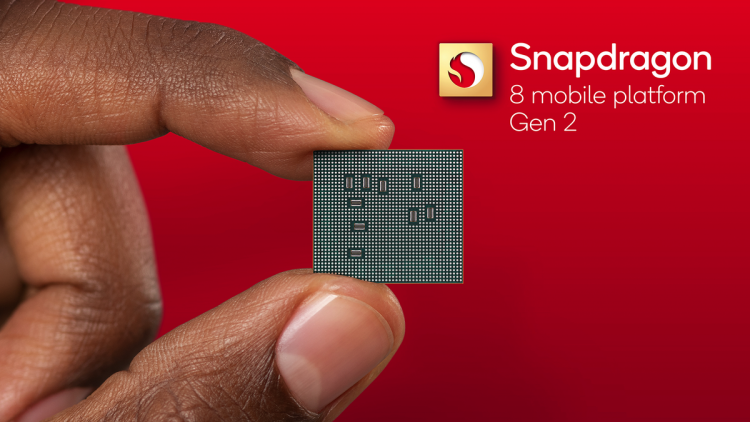Qualcomm
During its annual Snapdragon Summit, Qualcomm revealed the next-gen Snapdragon 8 Gen 2 mobile chipset. Interestingly, Qualcomm mainly describes this chip in terms of AI and camera performance, though it should deliver incremental improvements to graphics and power efficiency.
The first smartphones with Snapdragon 8 Gen 2 should arrive before the end of the year. Qualcomm says that brands like Motorola, OnePlus, Sony, and REDMAGIC are slated to use this flagship chipset. Additionally, Qualcomm notes that the 200MP Samsung ISOCELL HP3 camera sensor is optimized for Snapdragon 8 Gen 2—this sensor previously debuted in a Motorola phone, and we expect it to be a popular option for flagships in 2023.
Performance-wise, the Snapdragon 8 Gen 2 should deliver a 60% improvement in AI processes, including natural language processing. This is largely thanks to new INT4 support, plus an upgraded Qualcomm Sensing Hub and a more AI-focused Hexagon processor.
These AI improvements trickle down to a phone’s cameras. With new Snapdragon Sight technology, your phone will automatically optimize and enhance photos to help subjects look sharp and color-accurate. Interestingly Snapdragon 8 Gen 2 also introduces an AV1 codec with support for 8K 60FPS HDR video playback.
Other improvements include a boosted Adreno GPU for 25% faster gaming performance. The Kryo CPU also gets an upgrade, though Qualcomm only claims 40% more power efficiency. (You should still see an improvement in performance benchmarks, as the more power-efficient CPU will reduce the need for throttling.
Of course, this new chipset supports all the latest Qualcomm standards. There’s the FastConnect 7800 platform for Wi-Fi 7 support, Snapdragon Sound for lossless audio (with select speakers and headphones), and the latest Snapdragon Secure tech for improved security.
According to Qualcomm, the first phones with Snapdragon 8 Gen 2 will launch in late 2022. But oddly enough, Qualcomm doesn’t mention Samsung in its list of early adopters—this discrepancy happens every few years, but it will feed rumors that Samsung is going all-in on its Exynos platform (like how Google abandoned Snapdragon for Tensor).
Source by www.reviewgeek.com





























